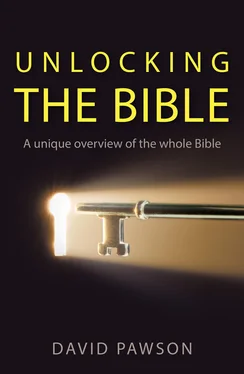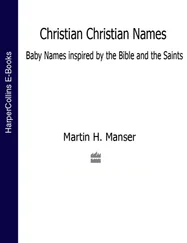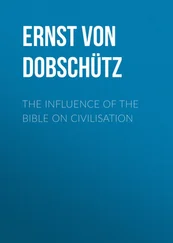(ii) During
The River Jordan operated like a moat on the eastern edge of Canaan, especially at harvest times when floods could reach depths of 20 feet, with no bridges or fords to enable easy crossings. We have noted already that it is likely that a temporary natural dam upstream stopped the flow of the river to enable the people to cross. The timing was perfect: the river bed was dry at the precise moment when the priest at the front of the convoy entered the river.
The miracle enabled the crossing but also had an additional purpose. Many of the new generation of people who entered the land with Joshua had not witnessed the miracle of the crossing of the Red Sea recorded in the book of Exodus. God wanted his people to see his mighty power and to have confidence in the leadership of Joshua as he led them against the Canaanites and into the Promised Land. God was with him as he had been with Moses.
(iii) After
Their first camp in the Promised Land was at Gilgal, an open space near to the fortified town of Jericho which had been built to guard the eastern approach up to the hills. When the Israelites arrived they did three things:
1 They took 12 stones from the bed of the River Jordan and made a cairn as a reminder for future generations of how God had dried up the river. Remembrance was an important part of Old Testament piety. Israel had as part of their culture many reminders of what God had done for them in the past. A cairn of stones was a favourite method of marking a significant site, with the 12 stones representing the 12 tribes.
2 They circumcised all the men. The new generation had not undergone this covenant rite, first introduced with Abraham. Joshua wanted to follow the law to the letter – the people’s spiritual condition was important.
3 They named the place Gilgal, which means ‘rolled’, because God had ‘rolled away’ the reproach or disgrace of Egypt.
God also did something when they entered the land: he stopped sending manna. For 40 years the Israelites had fed off this daily provision, but now they had reached the fertile land of Canaan, ‘a land flowing with milk and honey’, and the manna was redundant. Even today there are delicious grapefruits and oranges sold in Jericho.
(iv) The captain of the Lord’s host
Jericho was the first city they were to attack, but before the battle Joshua had an unusual experience. He approached the city by night to see the fortifications for himself and was met by an armed man.
Joshua suspected this man was an enemy and asked whether he was friend or foe. He was surprised to receive the answer ‘No’, a nonsensical reply! But then the man added that he was not part of the Hebrew or Canaanite peoples, but belonged to God’s forces, involved with heavenly rather than earthly troops. He was virtually asking Joshua whose side he was on! The person was none other than the captain of the Lord’s host, i.e. a senior angel, an archangel or even the preincarnate Son of God himself. Joshua was being reminded that he was not the highest officer in the Lord’s army, but only an under-officer. The experience also made clear to him that he did not fight alone, nor was he the true commander of Israel – he was a servant of God and the people.
2. CONQUERING
The military strategy for taking the land is clear – they were to divide and conquer. Joshua drove a wedge straight through the middle of Canaan and then, having divided the enemy into two halves, he conquered the south then the north. This strategy prevented the forces in Canaan from uniting, and meant that Israel could fight manageable numbers, dealing with each area in turn.
The view that Joshua is prophetic history is underlined by the space given to the first two cities attacked. Jericho and Ai were deemed the most significant. The moral lessons, both positive success and negative failure, learned from these two inital assaults, would be confirmed in later engagements; but the prophetic interpretation would not need to be repeated.
(i) The centre
Jericho
Ancient Jericho is a mile down the road from modern Jericho. Its ruins today are at Tel Es Sultan and reveal that Jericho is the oldest city in the world, dating from 8000 BC and containing the oldest building in the world, a round tower with a spiral staircase inside. These remains have been excavated and, of course, the key question was whether the walls which fell in Joshua’s day could be found. In the 1920s the archaeologist John Garstang thought he had found them, only to be contradicted by Kathleen Kenyon, who asserted that Jericho was not even occupied in Joshua’s day! However, the Egyptologist David Rohl has revised the dating and discovered fallen walls and burned buildings at another level in the diggings (see his remarkable book The Test of Time, Century, 1995, following the TV series of the same name, which includes his discovery of remains of Joseph’s time in Egypt, and his even more remarkable Legend: The Genesis of Civilisation, Century, 1998, locating the Garden of Eden, still full of fruit trees - and he’s not even a believer!)
When Jericho eventually fell, Joshua cursed anyone who sought to rebuild it. He said that their first-born would die when the foundations were laid, and their youngest would die when the gates were put in place. The book of Kings records an attempt to rebuild the city 500 years later, when the curse was enacted exactly as predicted. Although one would expect building work to take place on the ruins, therefore, the curse was a real deterrent. The remains of Jericho were left open to the weather and available to anyone wishing to remove stonework for other buildings. The absence of some walls thus helps to confirm the truth of the Bible’s record.
Archaeologists have confirmed the size of the walls from similar constructions. They suggest that Jericho’s walls were 30 feet high, with a 6-foot thick outer wall and a 12–15-foot gap between that and a 12-foot thick inner wall. The walls became a barrier as the city grew, so houses were perched on the top of the walls in close proximity to one another. It is easy to see how an earth tremor could send the whole lot toppling down. The text tells us that the sustained noise of the horns of 40,000 men was the trigger, so maybe this sound was sufficient – rather in the way that an opera singer can crack a light bulb if she sings at a certain intensity and pitch. The only house that remained standing was the one with the scarlet thread hanging from the window – the house of the prostitute Rahab, preserved because of her faith in the God of Israel.
The destruction was so great that no fighting was necessary – the Israelites simply walked in and took the city. But victory celebrations were conditional. God told them that this city was his, rather like the ‘first fruits’ of the harvest. They must recognize that this was God’s victory, not theirs. The cities conquered in the future could be looted, but not Jericho. One man, however, disobeyed the command, and this fact links with the next story.
Ai
The flourishing city of Ai was farther up the hill from Jericho. But this time the battle was lost. Israel made two errors. The first was over-confidence: Joshua used fewer troops, believing that conquering this city would be as easy as it had been with Jericho. They learnt the important lesson that it is fatal to think that because God has blessed you once, he is going to do it again in the same way.
The man who took some of the loot from Jericho made the second error. Achan had taken a Babylonian robe, 200 shekels of silver and a wedge of gold weighing 50 shekels, thinking that these items’ disappearance would not be noticed. When Joshua’s troops first attacked Ai, they were routed and they fled. Joshua was distraught and asked God why he had let this happen, especially now that their reputation was growing. God explained that Israel had sinned; one of them had taken something devoted to God. So they drew lots to find the tribe, then the clan, then eventually Achan’s family.
Читать дальше











